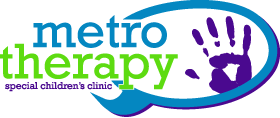The Purpose and Benefit of Social Skills Playgroups for Kids
At Metro Therapy we understand—and have seen firsthand—the significance and advantages of social skills playgroups for children. This article will dive into the benefits of social play groups in pediatric speech and occupational therapy.
Understanding Social Skills play groups in Pediatric Speech and Occupational Therapy
Social skills playgroups are kept small, limited to groups of two or three children, allowing the children to focus on learning social rules. Each child is carefully matched with a group based on age and skill level. Under the guidance of a Metro Therapy pediatric speech therapist, children will learn nonverbal cues by sharing and taking turns in play. These playgroup sessions are conducted in our speech rooms.
How Old Should My Child Be for Social Playgroups?
Ages that can benefit range from small children just learning to play, all the way up to middle schoolers who need to learn reciprocal communication. Small children between three to five years old will practice following simple routines or schedules in order to participate in structured play. This is a fantastic way to help prepare them for preschool if they're not yet enrolled in an early childhood program.
Structured play includes:
sharing with others
waiting their turn
learning how to play a turn-taking game
participating in simple back-and-forth conversation
telling someone their name
initiating or responding to greetings in farewells
Older children, particularly those in elementary and middle school, focus on learning reciprocal communication, covering topics such as nonverbal cues and self-advocacy.
Social Skills Playgroups in Combination with Speech Therapy and Occupational Therapy
Participation in social skills playgroups may benefit children who are already participating in occupational or speech therapy, providing additional opportunities to develop communication skills and social skills with their peers. Social playgroups allow these children to learn reciprocal communication and a wide range of social skills, which can increase participation and social interaction in occupational or speech therapy.
Activities in social skill play groups include:
getting to know someone
initiating and participating in a conversation
nonverbal communication
problem-solving
teamwork
perspective taking
self-advocacy in social situations.
These group sessions typically span several weeks; if you're considering enrolling your child in one of our social skills playgroups, feel free to reach out to us at (763) 450-9400.
